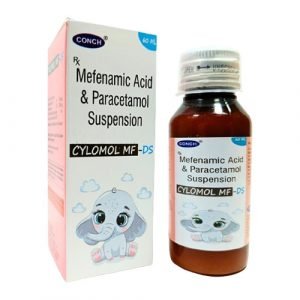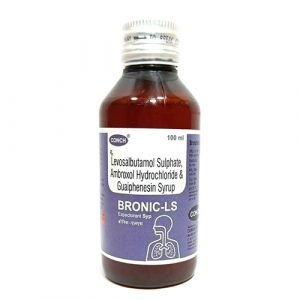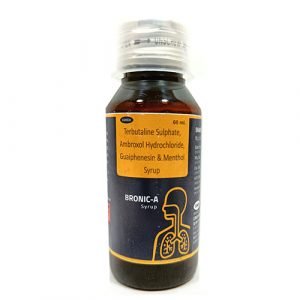Mefenamic Acid and Paracetamol Suspension is a well-formulated combination medication designed to alleviate mild to moderate pain and reduce fever in children and adults. This oral suspension brings together two effective analgesic and antipyretic agents Mefenamic Acid and Paracetamol (also known as acetaminophen) which work synergistically to provide fast-acting relief from various painful conditions, including headaches, toothaches, menstrual cramps, musculoskeletal pain, and post-surgical discomfort.
This suspension is also highly effective in treating fever, especially in children, while being gentle on the stomach when taken as prescribed. It is an optimal choice for pediatric care, as its liquid form ensures easy administration for young patients who may have difficulty swallowing tablets.
Uses of Mefenamic Acid and Paracetamol Suspension
Pain Relief: Mefenamic Acid and Paracetamol Suspension is a medication for use in the treatment of mild to moderate acute pain due to headache, dental caries, body aches, and dysmenorrhea. This medicine also helps in the cure of osteoarthritis and rheumatoid arthritis by giving relief from pain.
Use in Fever: The suspension is commonly employed for the reduction of fever especially in pediatric cases like viral infection, common colds, or post-vaccination fever.
Pain management: This medication can also be used for post-surgical or post-trauma, where inflammation and pain exist.
Dosage Instructions
The dosage of Mefenamic Acid and Paracetamol Suspension is monitored by the doctor, taking into account the age, weight, and condition to be treated. For children, generally, dosages are measured using mg/kg body weight, while for adults, they follow the standard dosing.
Side Effects
While Mefenamic Acid and Paracetamol Suspension are generally well tolerated as directed, some patients do present side effects. This monitoring should also include the less common effects in children and the patient has to report them to the doctor.
Common side effects are :
Gastrointestinal Issues: There may be an upset stomach, nausea, vomiting, or diarrhoea, especially if there is a long use of Mefenamic Acid.
Dizziness or Drowsiness: The patients may feel dizziness or drowsiness after the use of this suspension.
Allergic Reactions: Although less common, allergic reactions include rash, itching, swelling (around the face or the throat), or difficulty in breathing. It requires emergency attention by medical professionals.
Liver Disorders: Paracetamol overdose can cause liver damage. The symptoms include jaundice, which is identified as yellowing of the skin or eyes, dark urine, or extreme tiredness. Always take the prescribed dose and not more than that.
Precautions
- Patients diagnosed with kidney or liver disease should not take this medicine unless strictly advised by a doctor. It can worsen the condition.
- Mefenamic Acid may cause ulcers or bleeding in the stomach or intestines, especially if they are used long-term. The risk is increased in those patients who have a history of gastrointestinal problems or who have used NSAIDs before.
- Mefenamic Acid, like all other NSAIDs, is strictly contraindicated during pregnancy. It poses a risk to the developing fetus or complicated labour.
- If a patient is allergic to Mefenamic Acid, Paracetamol, or NSAIDs, then the suspension must not be given.
- The use of alcohol during the administration of this suspension will increase one’s risk of being predisposed to liver damage, especially in cases involving Paracetamol.
Please Note: We do not support the unsupervised use of any pharmaceuticals. Always take advice from your doctor or healthcare provider before starting any new medication.







